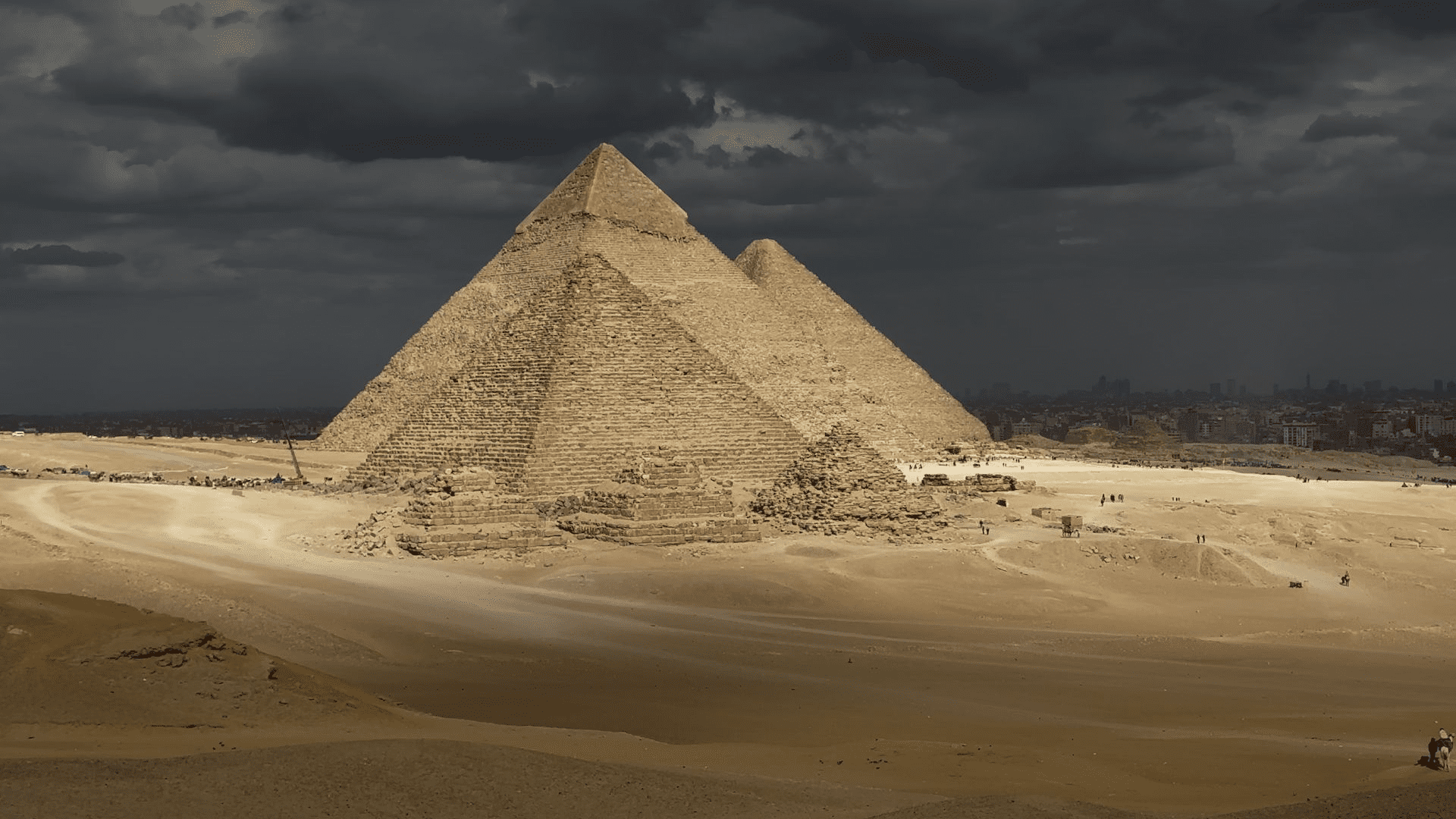Giza’s Smallest Pyramid Retains Its Rugged Beauty as Cladding Restoration Plan is Axed – Dailynewsegypt


Egypt has shelved a contentious proposal to reskin the Pyramid of Menkaure, the smallest of the iconic Giza trio, with its original granite cladding. The plan, dubbed “the project of the century” by some, drew sharp criticism from archaeologists and conservationists.
A committee of renowned experts, led by renowned Egyptologist Dr. Zahi Hawass, unanimously opposed the project. Their concerns hinged on the impossibility of accurately placing the scattered granite blocks, potentially altering the pyramid’s historical fabric and masking valuable insights into its construction.
“It would be impossible to ascertain the exact, original position of any of the casing blocks,” stated the committee report. “Any re-installation would change the…original fabric and the appearance of the pyramid, concealing the evidence of how ancient Egyptians designed and built the Pyramids.”
This decision aligns with international restoration principles advocating for minimal intervention and preservation of heritage in its authentic state. Experts like Egyptologist Monica Hanna applauded the move, highlighting the absurdity of “covering the Pyramid of Menkaure with tiles” and urging respect for established protocols.
The initial plan, a collaboration between the Egyptian government and Japanese experts, aimed to reconstruct the outer shell using existing blocks. However, concerns over accuracy, the potential damage from using cement, and the historical value of the exposed pyramid prevailed.
While the cladding project was scrapped, the committee did approve archaeological excavations at the site, subject to a comprehensive plan. This indicates a commitment to further exploration and understanding of the pyramid, albeit through less intrusive methods.
A project to restore the smallest of the Giza pyramids has received mixed reactions in Egypt, with some people doubting the practicality and others outraged.
The project aims to recreate an outer shell of granite on the Pyramid of Menkaure’s four sides and is a collaboration between the Egyptian government and Japanese archaeological experts.
Experts want to reconstruct the cladding from blocks that are currently scattered around the structure, believed to have collapsed in an earthquake less than a thousand years ago.
It has been described as “the project of the century” by Mostafa Waziri, secretary general of Egypt’s Supreme Antiquities Council – the body that oversees archaeological projects across the country.
Towering at 65 meters, the Pyramid of Menkaure, built by the 4th Dynasty pharaoh himself around 2,490 BC, stands as the smallest yet most intricate of the iconic Giza trio. While dwarfed by its neighbours, it houses architectural and artistic treasures that offer unique insights into ancient Egyptian engineering and artistic prowess.
Carved from limestone and granite, the pyramid rests southwest of the colossal structures dedicated to Menkaure’s grandfather, Khufu (Cheops), and father, Khafre. Unlike its larger counterparts, it originally boasted a lower section clad in red granite, adding a unique touch to its profile.
However, beauty lies not just on the surface. Menkaure’s pyramid boasts chambers exceeding the complexity of Khafre’s. Explore a room adorned with intricate decorative panels, another featuring six imposing niches, and finally, the grand burial chamber lined with massive granite blocks. Here, amidst the silent stones, lay the pharaoh’s black stone sarcophagus, carved with intricate panels, tragically lost at sea during its transportation to England in 1838.
The pyramid complex wasn’t just a monumental tomb. It also housed stunning sculptures, some of the finest examples surviving from Egypt’s rich history. These artworks offer invaluable glimpses into Menkaure’s reign and shed light on the artistic sensibilities of the era.






